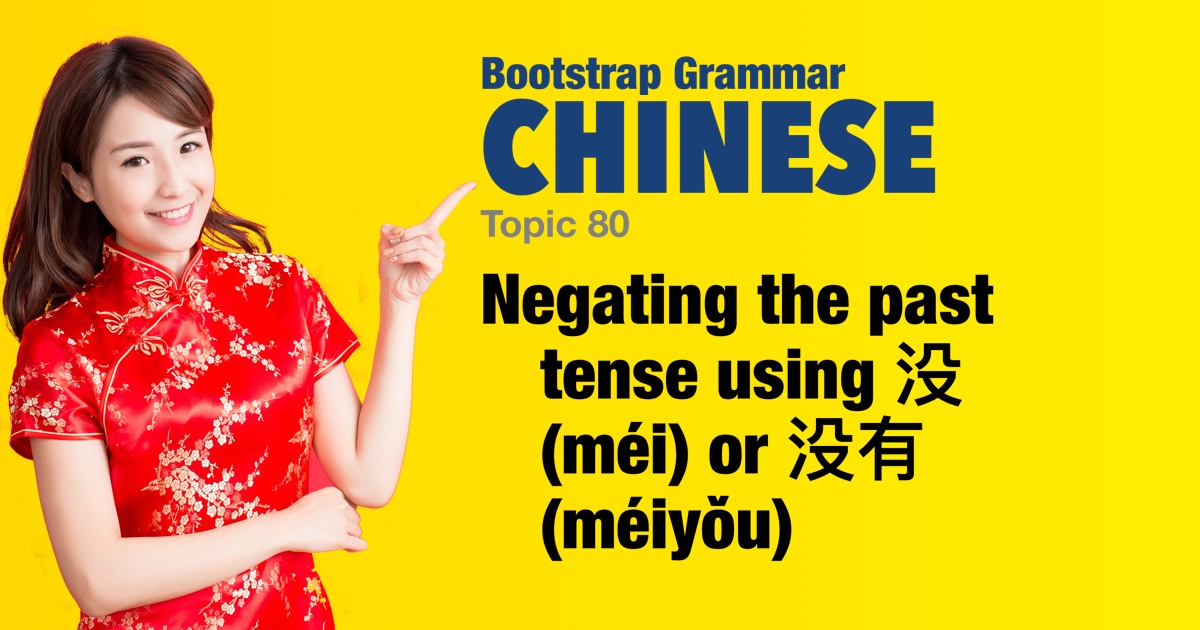Chinese grammar - Negating the past tense using 没 (méi) or 没有 (méiyǒu) |
|||
|
|||
In Chinese, when negating a past tense phrase, we use the couplet 没有 (méiyǒu). This is often shortened to just 没 (méi). In this case, the completed action marker 了 (le) is omitted. Both 没 (méi) and 没有 can be used. 没 alone is more informal, while 没有 is more formal and emphatic. |
| Examples: | |
|
他没来。
tā méi lái. He didn't come. |
|
|
他没出去。
tā méi chūqù. He didn't go out. |
|
|
你没长大。
nǐ méi zhǎngdà. You didn't grow up. |
|
|
灯没关。
dēng méi guān. The light wasn't turned off. |
|
|
她没毕业。
tā méi bìyè. She didn't graduate. |
|
|
我没吃一块饼干。
wǒ méi chī yí kuài bǐnggān. I didn't eat a biscuit. |
|
|
不,我没有吃那块饼干。
bù,#wǒ méi yǒu chī nà kuài bǐnggān. No, I did not eat that biscuit.
|
|
|
我没在湖里游泳。
wǒ méi zài hú lǐ yóuyǒng. I didn't swim in the lake. |
|
|
他没回家。
tā méi huíjiā. He didn't go home. |
|
|
我没洗澡。
wǒ méi xǐzǎo. I didn't take a bath. |
|
|
她没笑。
tā méi xiào. She didn't laugh. |
|
|
天气没冷。
tiānqì méi lěng. The weather wasn't cold. |
|
|
他们没有结婚。
tāmen méi yǒu jiéhūn. They didn't get married. |
|
|
孩子们没睡着。
háizimen méi shuìzháo. The children didn't fall asleep. |
|
 |
|


 Empathic use of
Empathic use of 